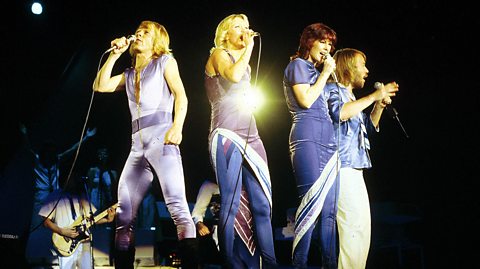
For many of us there are certain songs that have the power to transcend the everyday and instantly transport us back to a certain time or place т sitting in the park on a sunny day, dancing on a night out with your Uni mates, walking down the aisle, running a marathon, your first kissтІ
Are you thinking of yours now?
Does it happen to be a song that takes you straight back to your teens or twenties? If so т youтre not alone.
The nostalgia surrounding our favourite songs isnтt just a recollection of old memories; scientific studies show we remember more from our adolescence and early twenties than any other period of our lives.
The music we listen to during this period has greater lasting impact than songs in later life because of a psychological phenomenon called the reminiscence bump.
Our memories define who we are and shape our sense of identity, but they are not evenly distributed throughout our life.
We have fewer memories from birth to about eight-years-old, while at the other end of the scale our minds can easily recall memories that happened most recently, although this does decline with age.
However, researchers have found there is a key age between the ages of 10 to 30-years-old when the reminiscence bump applies, meaning our memories have a particular affinity for recalling events.


The power of emotional communication
The reminiscence bump happens for everything т our favourite books, films, sports stars and music, but evidence suggests music features most highly because musical memories are stored in a тsafeт area of the brain which is more resilient and protected against age related conditions.
тMusic is one of the most fundamental ways that we can express emotionsт, says Prof Catherine Loveday, a cognitive neuropsychologist at the University of Westminster.
Prof Loveday has extensively studied the relationship between music and memory.
She spent the last eight years asking people about their music memories and their preference for music across a lifetime.
She found there is a consistently reliable peak in both memory and preference for music people listened to during their teenage years.
Even when working with people in their eighties she found their strongest musical memories take them back to their youths.
Itтs not necessarily when the music was released that is relevant but rather the time frame during which the music was important to an individual.
One theory for why this happens is that our minds undergo an intense and rapid phase of development during our teenage years and early twenties so our budding brains and memory systems are at their peak absorbing as much information about the world as they can.

Neural connections
Prof Loveday explained that listening to our favourite music has a fundamental effect on the brain; thereтs a surge of activity in the reward pathways that increases the levels of dopamine and oxytocin in our brains - the same pathways that are triggered when we do anything pleasurable such as eating, drinking or dancing.
тThere is evidence that structural elements of music get physically tied to our autobiographical memoriesт she said.
тMusical reminiscence bump is so powerful because we attach music to particularly emotional times.т
The strength of these memories can also be explained by identity theory.
Our teenage years are a time of development socially, biologically and cognitively, and we start to build our own independent sense of identity.
Itтs during this period when we start to make key decisions that help shape who we are т who we surround ourselves with, our attitudes to things, what job we want to pursue, what we want to study, where we want to live.

The power of firsts
Itтs a lot more powerful when the brains processes exciting, new experiences than boring ones, and during this period of тfirstsт we start to build a bank of self-defining memories т first kiss, first car, first time travelling abroad, first time away from home, first time going to a concert.
тMusic provides the soundtrack to our lives.т Matt Griffiths CEO of , which funds music-making projects for 0-25 year olds, explained.
тIt stirs powerful emotions and feelings, recalling vivid memories.
тIt defines who we are, creates precious bonds and friendships, makes us feel better.
тAgain and again, the evidence we gather at Youth Music demonstrates powerfully the personal and social benefits of music-making, how young people benefit from this and develop their own coping strategies, which they draw on particularly in difficult times.т
Our need for friendship and human interaction is key, тOne of the most powerful reasons why people choose a song is because it reminds them of a person,т Prof Loveday said, noting that guests on Desert Island Discs often choose a piece of music for this exact reason.
тWe return to key moments in our life over and over again because they reinforce who we are."
So with this in mind, the next time youтre hit with a wall of nostalgia and longing for the good old days of тThe Sign" (Ace of Base, 1994), thereтs no need to worry.
Itтs probably not your questionable music taste, itтs more likely musicтs powerful ability to connect us with the people, place and moments that make us who we are.

Play It!: Explore song elements or play and sing along to music
Use the three different modes to see the elements that make up a song, play or clap along with the music or make and listen back to your own version of a song. (KS1)

Abba reunion like 'going back in time in 30 seconds'
Abba's recording of their first new music since 1982 brought back "bonds that are beyond anything else", band member Bjorn Ulvaeus says.
